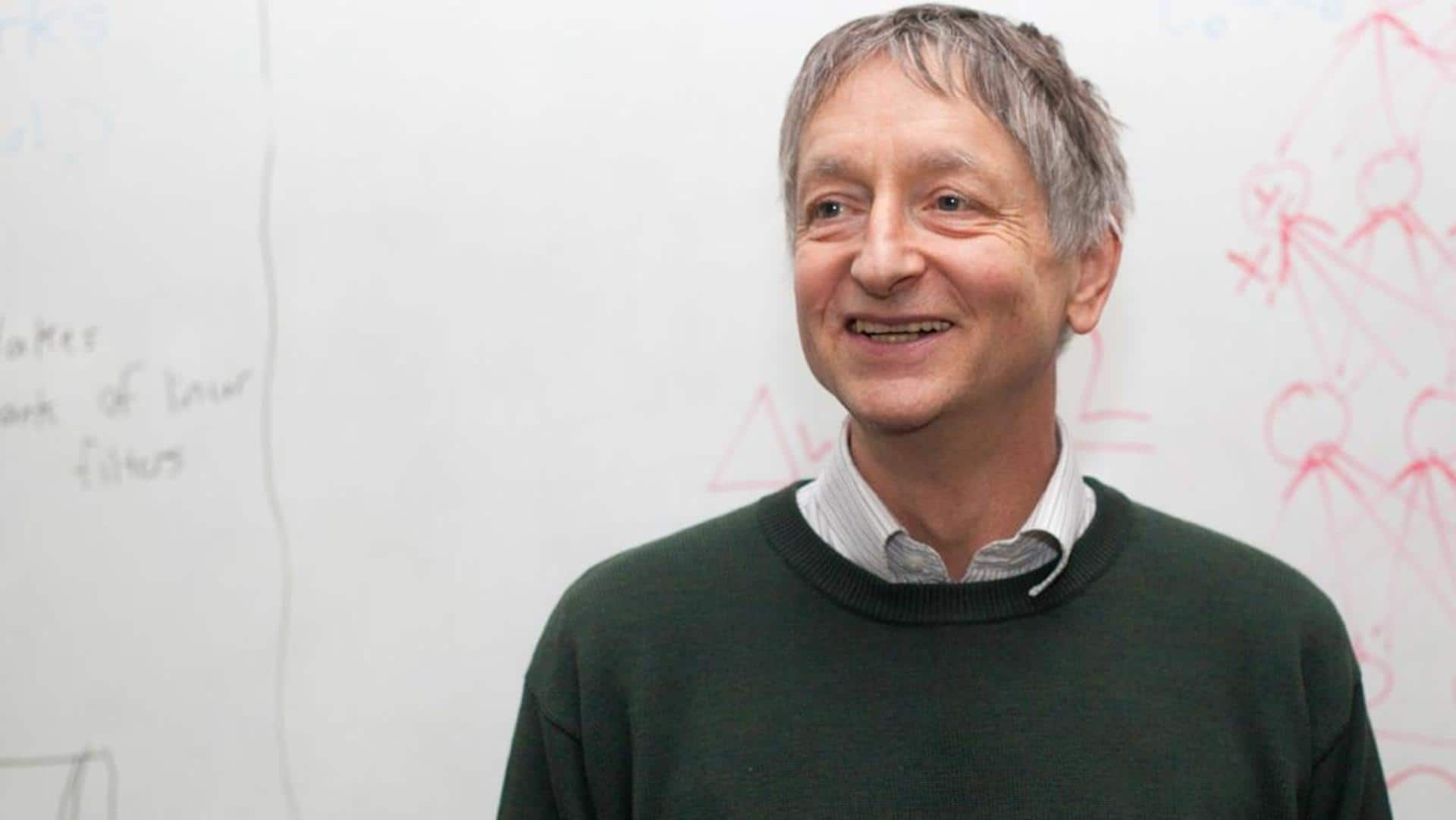
'Godfather of AI' Geoffrey Hinton leaves Google: His incredible contributions
What's the story
Geoffrey Hinton is known for his pioneering work spanning almost five decades in the field of artificial intelligence, and is often called the 'Godfather of AI.' Hinton, who was a part of Google for more than a decade, recently quit the company. Hinton developed the technology that is central to chatbots like ChatGPT. Let's take a closer look at his achievements.
Education
Hinton finished Ph.D. in artificial intelligence from Edinburgh in 1978
Hinton finished BA in Experimental Psychology from Cambridge in 1970 and Ph.D. in artificial intelligence from Edinburgh in 1978. He carried out his postdoctoral work at Sussex University and the University of California San Diego. From 2004 to 2013, he served as the director of the program on "Neural Computation and Adaptive Perception," funded by the Canadian Institute for Advanced Research.
Awards
He has received Canada's top award in Science and Engineering
Hinton bagged the first David E. Rumelhart prize in 2001. He has also received the IEEE James Clerk Maxwell Gold Medal in 2016 and NSERC Herzberg Gold Medal in 2010, which is Canada's top award in Science and Engineering. In 2018, Hinton, along with his collaborators, received the Turning Award equivalent to the "the Nobel Prize of computing," for his work on neural networks.
Journey
Hinton's work is central to chatbots like Google Bard, ChatGPT
In 2012, Hinton started a company with his students Ilya Sutskever and Alex Krishevsky. They designed a neural network that could analyze thousands of photos and learn to identify common objects like cars. Google acquired the firm from Hinton for $44 million. Their technology is at the heart of new chatbots including Google Bard and ChatGPT. Sutskever later became the chief scientist at OpenAI.
Contributions
Hinton's breakthrough work revolutionized speech recognition and object classification
Hinton's work primarily involves designing machine learning algorithms. His focus was to discover a learning procedure that is "efficient at finding complex structures in large, high-dimensional datasets and to show that this is how the brain learns to see." His research team in Toronto contributed to significant breakthroughs in deep learning which has revolutionized speech recognition and object classification.
Resignation
Hinton worked at Google for over a decade
Fast forward to today, Hinton has left his job at Google, where he worked for over a decade. He believes that until last year Google behaved like a "proper steward" of the technology, cautious not to release anything that might bring harm. However, things changed once Microsoft integrated ChatGPT into its Bing search engine, which Google considers a threat to its search business.
Concerns
He worries that the internet will be flooded with misinformation
One of the most worrying concerns, according to Hinton, is that the internet will be swarming with false text, videos, and photos, making it hard for the public to distinguish what's true. He is also concerned that AI technologies will capsize the job market. Chatbots like ChatGPT hold the potential to replace assistants and translators, and those who carry out rote tasks.
Future
Hinton worries that AI would pose a threat in future
Hinton is particularly concerned that future AI technologies will become dangerous as they often pick up unexpected behavior from analyzing large datasets. He thinks that the AI race, involving the tech giants, will not stop without some form of global regulation. "I don't think they should scale this up more until they have understood whether they can control it," he said.